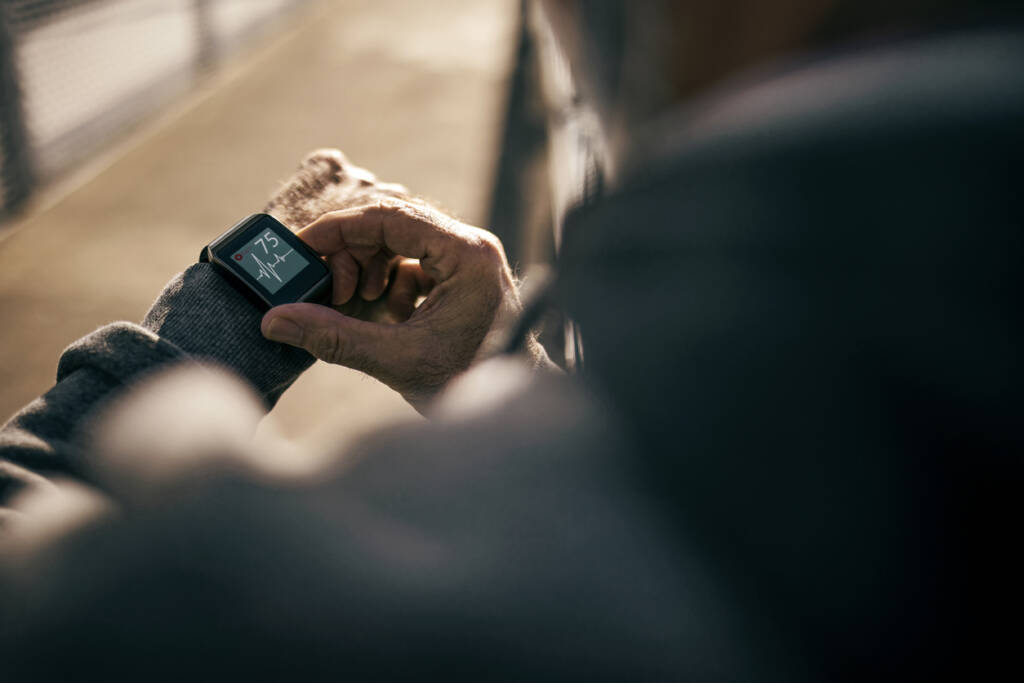SERENADE
Sensor-based explainable detection of cognitive decline
Introduction to the pilot
Context: Mild Cognitive Impairment (MCI) can progress to dementia, resulting in impaired cognitive function as well as decreased work, social, and relational abilities.
Problem: Sporadic visits with medical experts can not accurately assess the cognitive decline, which often consists of subtle behavioral changes.
Solution: We are developing a solution for continuous behavioral remote monitoring at home, so to identify digital biomarkers for early detection of cognitive decline.
Objective: To enable clinicians inspecting potential indicators of cognitive decline and improving their diagnosis.

Objectives
SERENADE will be based on digital biomarkers evaluating mobility, activities of daily living, and behavior, defined as quantitative data collected and measured from digital devices (e.g., environmental sensors in the home, and wearable devices) in order to detect symptomatic and functional changes for MCI patients.
SERENADE aims at designing new clinically validated AI methods to support the early detection of cognitive decline, also providing human-understandable explanations of detected anomalies and behavioral changes.
Timeline
The multidisciplinary team (composed of neurologists, neuropsychologists and computer scientists) meets to project schedule and specific objectives. The team starts analyzing the cognitive decline indicators required by the clinicians and how to capture them with unobtrusive sensing technologies.
We design a robust sensing infrastructure capable of capturing the activities and the cognitive decline indicators required by the clinician. This infrastructure has been extensively tested in the lab.
Our unobtrusive sensing solution to detect early indicators of cognitive decline was approved by the ethical committee.
Our sensing infrastructure includes a smart cognitive assistant (i.e., a tablet application) to evaluate the cognitive status of the patient with specifically designed tests. We performed a preliminary experiment with real MCI patients in the hospital.
We start installing the sensing infrastructure in the homes of the enrolled patients and start acquiring data.
System components
Each patent will be monitored thanks to a combination of unobtrusive environmental sensors (installed in the home infrastructure), mobile, and wearable devices. This sensing infrastructure generates a continuous sensor data stream that is stored in a gateway inside the home.
AI algorithms will analyze collected sensor data to identify and monitor human activities, sleep and movement patterns considered as relevant indicators of behavioral changes.
SERENADE will include a graphical interface for clinicians, that will show the output of our AI algorithm in a clear and explainable way as a decision support tool for their diagnosis.
The pilot’s goal is to integrate the decision support system in a telemedicine platform. This will facilitate the storage and management of sensible data, its analysis in an anonymous form, and the interaction with the regional health service, including booking and accounting of the proposed service.
Team
Publications
SelfAct: Personalized Activity Recognition based on Self-Supervised and Active Learning, Luca Arrotta, Gabriele Civitarese, Samuele Valente, Claudio Bettini, 20th EAI International Conference on Mobile and Ubiquitous Systems: Computing, Networking and Services, November 14-17, 2023 Melbourne, Australia., 2023 Publication
DOMINO: A Dataset for Context-Aware Human Activity Recognition using Mobile Devices, Arrotta, Luca; Civitarese, Gabriele; Presotto, Riccardo; Bettini, Claudio, UNIMI Dataverse, V3, 2023 Dataset
DOMINO: A Dataset for Context-Aware Human Activity Recognition using Mobile Devices, Luca Arrotta, Gabriele Civitarese, Riccardo Presotto, Claudio Bettini, In Proceedings of the 24th International Conference on Mobile Data Management (MDM), IEEE Computer Society, 2023 Publication
SmartFABER: Recognizing Fine-grained Abnormal Behaviors for Early Detection of Mild Cognitive Impairment, Daniele Riboni, Claudio Bettini, Gabriele Civitarese, Zaffar Haider Janjua, Rim Helaoui., Artificial Intelligence in Medicine, Elsevier, 2016 Publication
Combining Public Human Activity Recognition Datasets to Mitigate Labeled Data Scarcity, Riccardo Presotto, Sannara Ek, Gabriele Civitarese, François Portet, Philippe Lalanda, Claudio Bettini, In 2023 IEEE International Conference on Smart Computing (SMARTCOMP), 2023 Publication
The MARBLE dataset: Multi-Inhabitant Activities of Daily Living combining Wearable and Environmental Sensors Data, Arrotta, Luca; Civitarese, Gabriele; Bettini, Claudio, UNIMI Dataverse, V1, 2021 Dataset
Probabilistic Knowledge Infusion through Symbolic Features for Context-Aware Activity Recognition, Luca Arrotta, Gabriele Civitarese, Claudio Bettini, Pervasive and Mobile Computing, Elsevier, 2023. (DOI: 10.1016/j.pmcj.2023.101780), 2023 Publication






